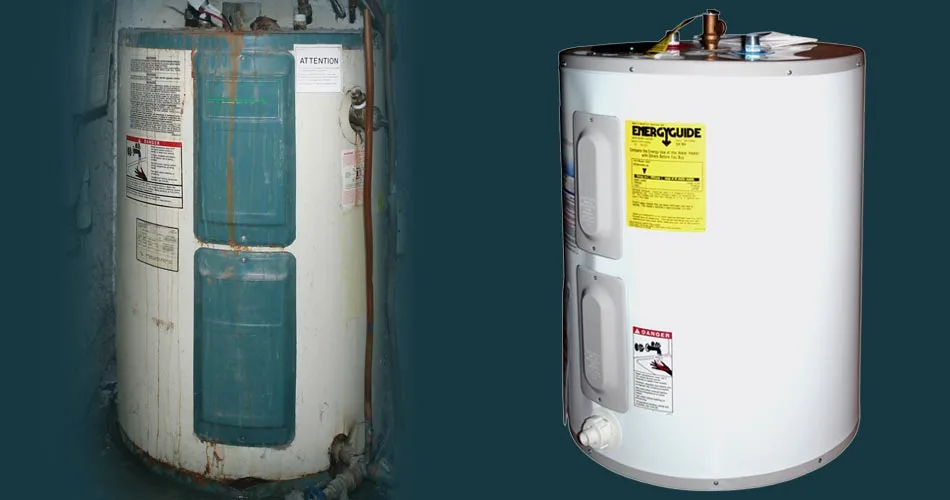As a homeowner, it is important to be aware of large appliances and mechanisms that allow your household to run smoothly. Knowing how your water heater should properly function and the life expectancy of the water heater can alleviate headaches and surprises when it needs to be replaced.
Typically, water heaters last for about eight to ten years. As this is an estimate, there are cases in which the water heater will give up sooner or last longer, but most homeowners should be aware that their water heaters will need to be replaced around the decade marker. In fact, gas water heaters tend to last closer to six to eight years, so it is important to know what type of water heater your home has and how old it is.
Rust is NOT your friend!
The biggest concern when it comes to knowing when to replace your water heater is the presence of rust. If you find rust coming out of the water tank and into your hot water or around the tank on the outside, there is no question, your water heater must be replaced. Here are some of the most common signs water heaters need to be replaced:
1. Your water heater is too old.
Signs of an old water heater in your home include rusting on the tank, failure to heat the water, leaks, and loud noises. If your water heater is 10+ years old it is time for a new one. Even if a repair is possible, you'll spend more money in the long run as parts continue to break down.
2. Rusty water or rusty heater inlet/valve.
When rust appears in your water tank or on the outside, it is a sign that leaks are going to start, if they haven't already. Rust is a recipe for disaster with water heaters and should be an issue that's immediately resolved. If rust is found on the outside of the tank around the inlet or pressure relief valve, then chances are it is in the tank and not worth the risk. A rusted water heater should be quickly replaced.
3. Noise from the water heater.
Simply put, your water heater should not be making any noises. A healthy water heater is quiet. When noises happen inside your water heater, this is due to sediment buildup. Over time this buildup creates energy inefficiency, as well as, accelerated damage to the water tank.
4. Water around the water heater.
Water around the tank is a sure way to detect that your water tank has a leak or multiple leaks. Replacing your water tank immediately will save you from home damages should a major water heater leak occur. Sometimes, leaks can be fixed if they are coming from fixtures or fittings by tightening or adjusting. If the leak is not stopped after these adjustments are made, the water heater needs to be replaced prior to more leaks springing.
5. The water heater no longer sufficiently heats.
While this can be caused by a broken heating element or a misadjusted thermostat, chances are your household needs are higher than the capacity your water heater is able to produce. Replacing this water heater with a larger model to accommodate your household needs is the solution you problem.
How can you make your water heater last longer?
Consider getting water heater maintenance from a professional and trustworthy plumbing company, like Curtis Plumbing, to ensure your water heater continues working properly. Annual maintenance can prolong the life of your water heater considerably, or at the very least, make sure you hit that ten-year mark.
Annual flushing on your water heater will help rid the tank of sediment formation and keep your tank from wearing down sooner. Have a professional plumbing company perform your flushing. In addition to annual flushings, make sure your thermostat on your water heater is properly set to the standard temperature of 120 to 140 degrees. A plumbing professional can check this for you as well.
Take care of your current water heater and know when it is time to replace yours! Check your water heater serial number to see how old it is today! Your serial number consists of one letter and two numbers, the letter corresponding to a month on the year (A-L) and the numbers for the year. Know what to look for and when to look for it and keep your household running smoothly with dependable hot water!



Thanks for your comment!
Thanks for your feedback! Your comments have been successfully submitted! Please note, all comments require admin approval prior to display.
Error submitting comment!
There is a problem with your comment, please see below.